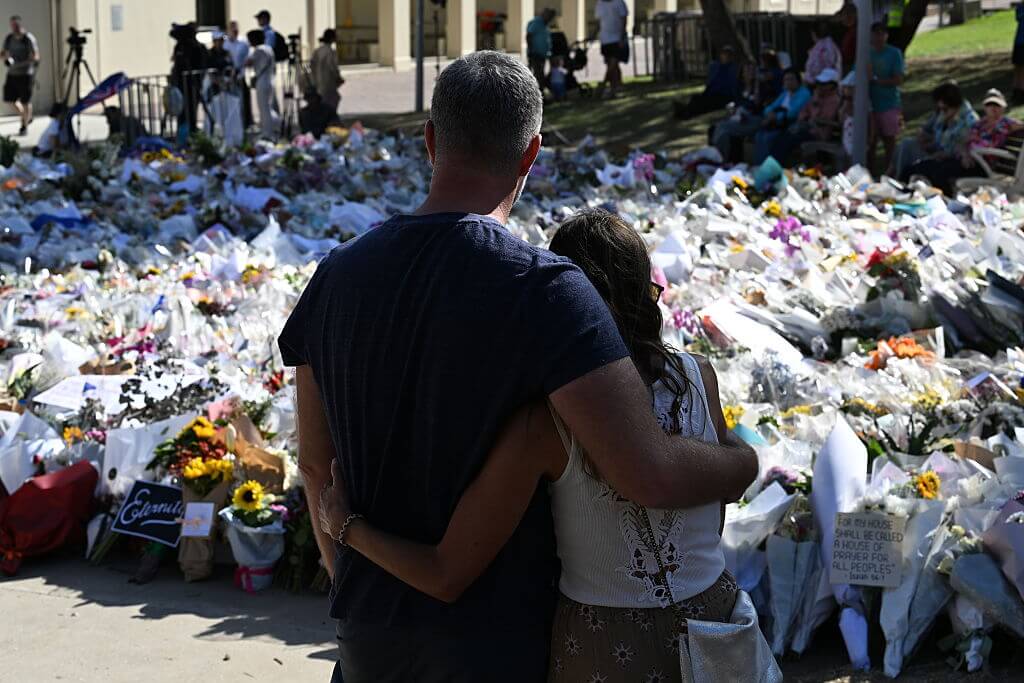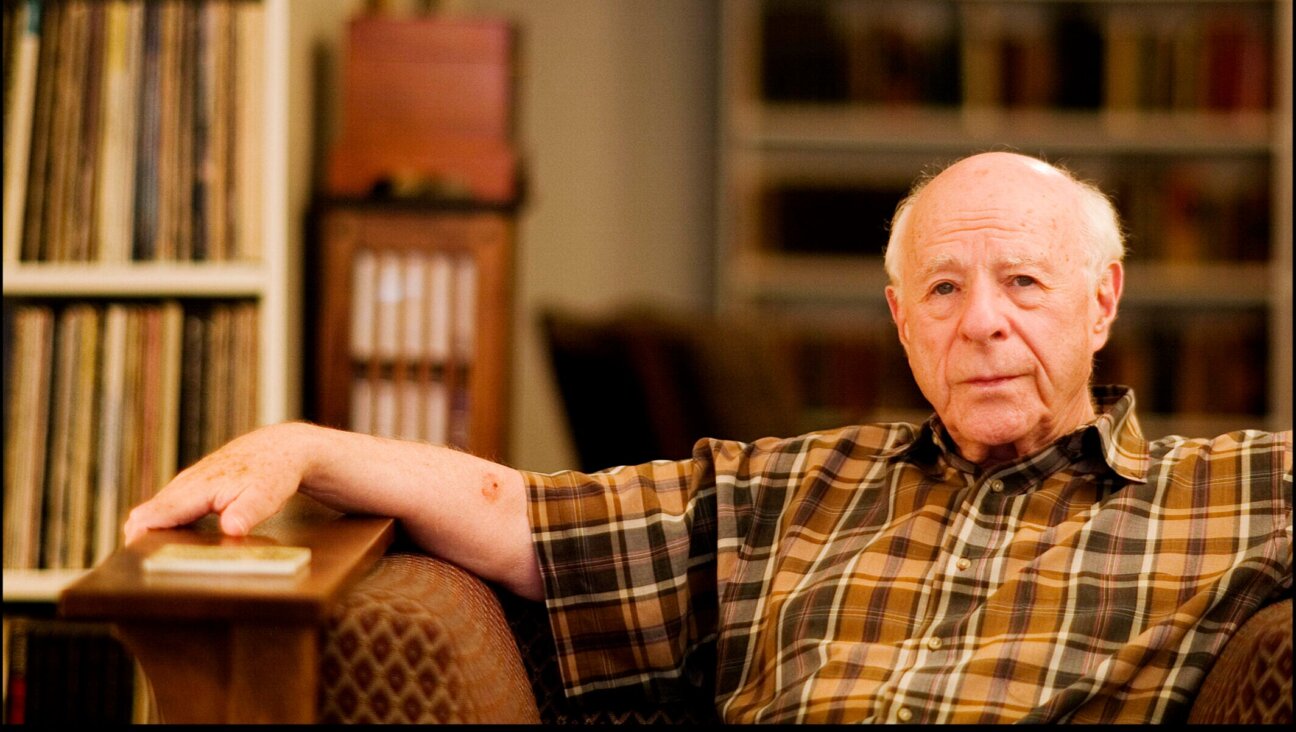How Erratic Trump Unnerves Even Netanyahu

Image by Mandel Ngan
After eight long years of feuding with Barack Obama, Israeli Prime Minister Benjamin Netanyahu is approaching Republican newcomer Donald Trump with far more caution and reserve than anyone anticipated.
Trump was supposedly the great hope of Netanyahu’s right-wing pro-settlement base. And yet, within hours after Trump’s inauguration Netanyahu was scrambling to restrain allies on his right who wanted to take advantage of Trump’s ascent to advance stalled settlement initiatives.
Among the measures Netanyahu swatted back was a bill pushed by Education Minister Naftali Bennett, head of the settler-backed Jewish Home party (and Bibi’s political rival), to annex to Israel the urban West Bank settlement of Ma’ale Adumim, just east of Jerusalem. Another was the so-called regularization bill, which would legalize wildcat settlement outposts established in violation of Israeli law on private Palestinian land. The bill is meant to circumvent Israeli Supreme Court orders to dismantle such outposts, some of which have gone unexecuted for years.
Netanyahu reportedly told Bennett on Inauguration Day that Trump administration officials were pressuring him not to “surprise” the new president with “unilateral” steps, such as the two bills in question, before the leaders meet in early February.
Three days later, after a phone conversation with Trump, Netanyahu warned a Likud Knesset caucus that surprising Trump could hurt U.S.-Israel relations. He also jabbed Bennett, saying the start of a new American administration is no time to “shoot from the hip” with ill-considered legislation. Netanyahu has stated publicly that he supports the Ma’ale Adumim bill in principle, but Israel’s most urgent priority right now is restraining Iran.
The prime minister, however, has any number of reasons, some of which he’d rather not advertise, to tread carefully with the new president. For one thing, it’s not at all clear where Trump will come down on settlements, and neither is it clear how long he’ll stick with whatever he says. True, he’s indicated sympathy for the Israeli right, notably by promising to move the U.S. Embassy, which is in Tel Aviv, to Jerusalem, as well as by nominating David Friedman — who’s well to Netanyahu’s right — as U.S. ambassador to Israel.
But Trump’s defense secretary, James Mattis, opposes Israel’s settlements policy, and his secretary of state, Rex Tillerson, spent his career in the famously pro-Arab oil industry.
Besides, Netanyahu understands Trump’s mercurial, vindictive nature; it’s wise for anyone who deals with him to approach with caution. That’s true for all parties concerned. It’s especially true for the leader of a country that lives under constant threat and depends utterly on the United States for its security.
However, Netanyahu has two other considerations in handling Trump. One has to do with a special relationship between Netanyahu and the institution of the American presidency. The prime minister has long taken great care to walk a narrow line between satisfying the ideologues who make up his coalition and base, not to mention his own hawkish instincts, and preserving a modicum of legitimacy in the eyes of the international community. He’s been remarkably successful: no indictments of Israelis before international tribunals; no serious sanctions; no loss of international trade, credit, air links or travel rights.
To keep his coalition hotheads in line, though, he’s relied on the threat of White House pressure, which the Obama administration often supplied. But the prospect of a Trump administration showering Israel with love worries some in Jerusalem, who wonder whether Netanyahu will lose his main tool to restrain his Cabinet. For now, the prime minister seems to have the situation under control. But he must be nervous.
Finally, there’s the question of Netanyahu’s personal future. He’s currently the subject of two separate investigations by Israel’s national police. One involves suspicion of graft, receiving expensive gifts, mainly from Australian billionaire James Packer and Israeli-American film producer Arnon Milchan (“Birdman,” “12 Years a Slave” and dozens more). The other involves an alleged influence-trading scheme, never consummated, in which Israel’s mass-circulation daily newspaper Yediot Aharonot would have agreed to soften its coverage of Netanyahu. In return he would have cut back the distribution of Yediot’s main competitor, the free daily Israel Hayom, owned by the prime minister’s top patron, Sheldon Adelson (also a Trump donor).
Netanyahu has repeatedly denied wrongdoing. He’s claimed that the investigation is a political “witch hunt.” But the attorney general, a Netanyahu protégé, authorized the probes personally. Investigators reportedly believe they have enough to indict, at least on the graft allegations. The smart money is saying Bibi’s days in office are numbered.
Hence his public spanking of the settlement movement. Hence his coolness toward the populist U.S. president. It’s an article of faith on the Israeli right that prime ministers facing indictment veer leftward in hopes of seducing the supposedly liberal government lawyers. Netanyahu would only be the latest to try it.
It’s now a parlor game in Washington and Jerusalem to find similarities between Trump and Netanyahu. Both are notoriously hostile toward the media. Both are the subjects of investigations by law enforcement agencies. In fact, just three days after Netanyahu’s January 3 complaint about a “witch hunt,” Trump used the exact same term — “witch hunt” — about the FBI investigation into possible Russian meddling in his election.
Both were carried into office by a coalition of the religious right and a disgruntled working class. Both view Iran and Islamist terrorism as their countries’ most dangerous enemies. And both are being urged by their military and intelligence chiefs not to tear up the Iran nuclear agreement. Doing so, the generals say, would simply put Iran on a fast track to a bomb. Both seem intent on ignoring that advice. They do not give much trust to their respective vaunted intelligence agencies.
But there is a fundamental difference between the two. Netanyahu is a seasoned, highly skilled. diplomatic and political operative with a deep understanding of the history and workings of the international system. Trump, by contrast, is a hypersensitive narcissist with a short attention span, a tenuous grasp of the truth and a dangerous obliviousness to how much he doesn’t know. All those combine to make him unpredictable and unsteady, among the most dangerous qualities a world leader can have. For all Netanyahu’s relief that Republicans now hold the White House, he has good reason — indeed, many good reasons — to be wary.
J.J. Goldberg is the Forward’s editor-at-large. Follow him on Twitter, @jj_goldberg














